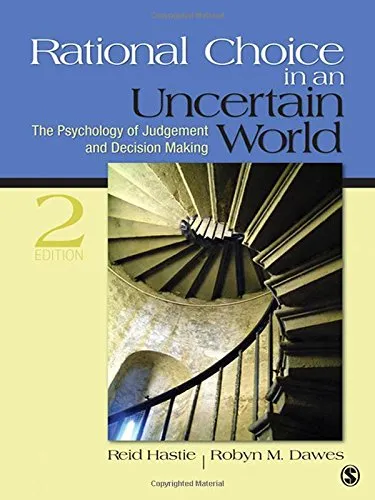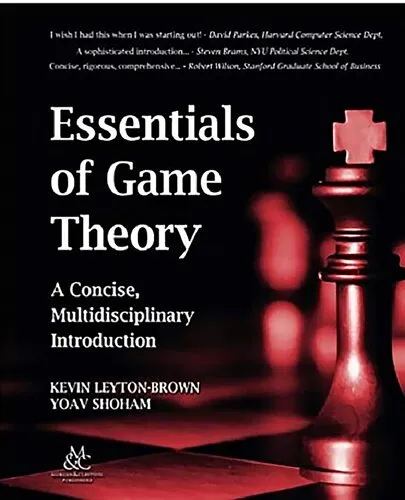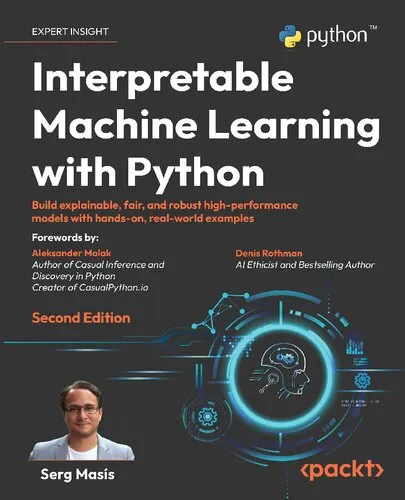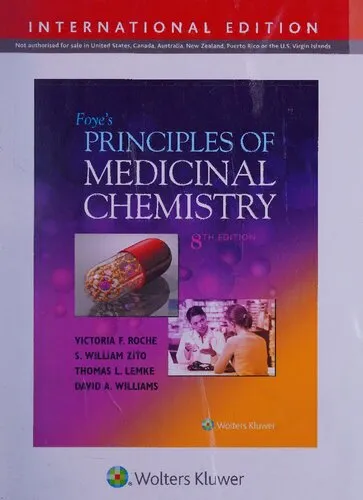Rational Choice in an Uncertain World: The Psychology of Judgment and Decision Making
4.5
Reviews from our users

You Can Ask your questions from this book's AI after Login
Each download or ask from book AI costs 2 points. To earn more free points, please visit the Points Guide Page and complete some valuable actions.Related Refrences:
Introduction
"Rational Choice in an Uncertain World: The Psychology of Judgment and Decision Making" by Reid Hastie and Robyn M. Dawes is an essential read for anyone seeking to understand the processes behind human judgment and decision-making. By marrying insights from psychology, behavioral economics, and cognitive science, the authors provide a compelling exploration of the challenges individuals face when making decisions in complex and unpredictable environments. This book sheds light on the intricacies of rational thought, the biases that cloud our decisions, and methods for enhancing the quality of our judgments.
Whether you are a student, professional, researcher, or simply someone interested in the mechanisms of decision-making, this book offers a practical framework. It highlights the psychological underpinnings of how we evaluate probabilities, weigh risks, and assess potential outcomes in uncertain situations. The ultimate goal? To demystify the ways we think, make choices, and improve our ability to reach reasoned conclusions.
Detailed Summary of the Book
The book begins by posing a fundamental question: why do humans make irrational decisions, even when we possess the resources and knowledge necessary for logical, reasoned choices? Hastie and Dawes delve into the cognitive tools humans use to interpret their surroundings, process information, and solve problems. They argue that the human brain, while immensely powerful, often relies on shortcuts—referred to as "heuristics"—to navigate decision-making processes. These heuristics, though useful, can also introduce biases that distort our perception of reality.
Central to the book is the distinction between "normative" and "descriptive" decision theories. Normative theories describe how individuals should make decisions if they were fully rational, while descriptive theories explore how decisions are actually made in the real world, where limitations in time, data, and cognition come into play. Through real-world examples and engaging psychological experiments, the authors dissect common biases like overconfidence, confirmation bias, hindsight bias, and the availability heuristic.
Later chapters provide actionable strategies for combating these biases and improving judgment. The book emphasizes the importance of statistical reasoning, the appropriate use of probabilities, and the benefits of a structured decision-making process. Instead of promoting unattainable perfection, Hastie and Dawes focus on how individuals can refine their thinking to achieve better, albeit imperfect, outcomes in uncertain scenarios.
Key Takeaways
- Human decision-making is frequently flawed due to cognitive biases and heuristics.
- Understanding the psychological mechanisms behind judgments can lead to more rational, effective decisions.
- Distinguishing between normative and descriptive theories of decision-making helps us see where gaps in rationality occur.
- Practical tools—such as statistical reasoning and probabilistic thinking—are essential for better decision-making.
- Improving judgment is an ongoing process that requires awareness and effort, rather than the expectation of perfection.
Famous Quotes from the Book
"To make good decisions, it is necessary to sharpen our ability to think probabilistically."
"Humans are not irrational; they are predictably irrational.”
"A good decision does not necessarily lead to a good outcome—luck and uncertainty still play a role."
Why This Book Matters
"Rational Choice in an Uncertain World" is more than just an academic text; it is a transformative guide for understanding and enhancing the decision-making process. As our world becomes increasingly complex and information-dense, the relevance of this book continues to grow. Poor decision-making can lead to detrimental outcomes in every sphere of life, from personal relationships to business operations and public policy. By providing a foundation for better reasoning and judgment, Hastie and Dawes empower readers to confront uncertainty with confidence and clarity.
This book also contributes significantly to the broader field of decision sciences. It bridges the gap between theoretical constructs and real-world applications, making its insights accessible to a wide audience. Thought-provoking yet practical, it encourages readers to question their assumptions, reconsider their judgments, and embrace a more deliberate approach to making choices. For anyone striving to improve their critical thinking and decision-making capabilities, this book is an invaluable resource.
Free Direct Download
You Can Download this book after Login
Accessing books through legal platforms and public libraries not only supports the rights of authors and publishers but also contributes to the sustainability of reading culture. Before downloading, please take a moment to consider these options.
Find this book on other platforms:
WorldCat helps you find books in libraries worldwide.
See ratings, reviews, and discussions on Goodreads.
Find and buy rare or used books on AbeBooks.
1488
بازدید4.5
امتیاز0
نظر98%
رضایتReviews:
4.5
Based on 0 users review
Questions & Answers
Ask questions about this book or help others by answering
No questions yet. Be the first to ask!






![The Ultimate iOS Interview Playbook: Conquer Swift, frameworks, design patterns, and app architecture [Team-IRA]](https://s3.refhub.ir/images/thumb/The_Ultimate_iOS_Interview_Playbook__Conquer__29925.webp)







